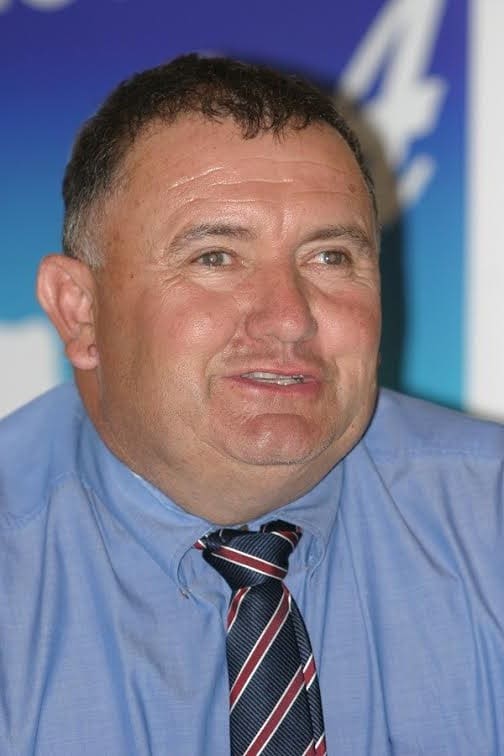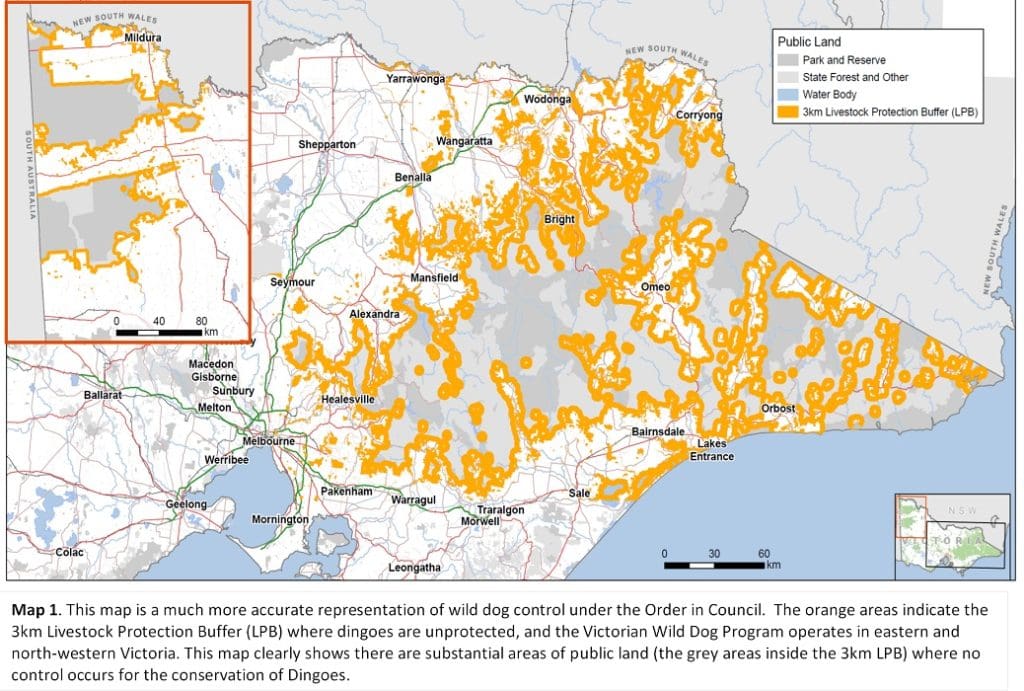
Tatiara councillor and former WoolProducers president Richard Halliday.
REMOVAL of north-west Victoria’s livestock protection order against wild dogs has sparked action by South Australian livestock producers concerned about the likelihood of increased dog attacks in South Australia.
Tatiara District Council member and former WoolProducers Australia president Richard Halliday said the Victorian wild dog control changes would put pressure on the South Australian dog control system.
“Our legislation says that if there is a dog inside the SA Dog Fence it is to be destroyed,” he said.
“So that means we don’t have a fence between us and Victoria, but there is still a border.
“So once a dog crosses into South Australia (from Victoria), it puts extra strain on our system to make sure our programs are up to speed to try to address any issues that may arise from dogs crossing,” Cr Halliday said.
Cr Halliday’s concern follows Sheep Central’s report about north-west Victorian farmer Alan Bennett whose sheep have been killed by wild dogs or dingoes, but he has been unable to obtain a control permit and was told to store mauled ewes in his freezer for DNA testing.
Areas in north-west Victoria that contain dingoes or wild dogs include the Big Desert Wilderness Park and the Murray-Sunset Park, both of which abut the South Australian border below the SA Dog Fence. These parks were subject to Victoria’s Wildlife Act (1975) Order In Council that effectively ‘unprotected’ the dingo on private land, and on public land within 3km of the private land boundaries to public lands, enabling baiting and trapping.
But on 14 March, the Victorian Government, removed the dingo unprotection order in north-west Victoria and has said on 1 October 2024 it will do the same in eastern Victoria. The government has said it is helping protect a vulnerable population of dingoes in Victoria’s north-west “while ensuring farmers are able to protect their livestock.”
However, a wild dog attack on sheep was recently reported north-west of the Ngarkat Conservation Park in South Australia, adjacent to the Big Desert Wilderness Park in Victoria, whose boundary had been subject to regular baiting and wild dog control under the former unprotection order. A Wild Dog Scan upload on 5 April notes two sheep were killed and another mauled, and includes a graphic photograph of a gutted sheep.

A map of public lands in Victoria showing the orange ‘unprotection’ buffers, including the discontinued buffers in north-west Victoria abutting the South Australian border.
National Wild Dog Management co-ordinator Greg Mifsud said dog attacks are starting again in South Australia and this will be ongoing and more frequent without effective management on the Victorian side.
Mr Halliday also expected that wild dog attacks would increase in eastern South Australia with the unprotection order change in Victoria.
“I’m not aware that wild dogs carry compasses or maps.”
Mr Halliday said the attack north-west of Ngarkat showed that South Australia was not immune to attacks from dogs crossing the border from Victoria.
“It’s very difficult for us, because we’ve got a very effective baiting program, that we have no support on the other side of the border.
“There have been lots of comments on how many dogs there are (in north-west Victoria) but no-one would have any true idea on that number.”
The lack of surface water in the north-west Victorian public lands mean there was an increased risk of wild dog predation outside the parks if dogs were looking for water, Mr Halliday said.
“We (livestock producers) are providing a pretty handy food source (to the dingoes) this time of the year.”
As a Tatiara district councillor successfully proposed a motion to the council giving it the ability to write to the relevant South Australian authorities to express concerns and issues with the Victorian Government’s unprotection order decision.
Cr Halliday said the Tatiara District Council would write to South Australia’s Environment Minister Susan Close and Primary Industries minister Clare Scriven to support their efforts to discuss the issue with their Victorian counterparts.
“And also we will be utilising the cross-border commissioner space that was developed to hopefully work our way through into the Victorian side with our concerns over the way the whole process has happened.”
Cr Halliday said South Australia was well that the Victorian Government was reviewing its wild dog management legislation.
“But then while walking around the Lucindale Field Days (in mid-March) …. and PIRSA told me that the wild dog controller in north-west Victoria has been told not to go to work, there is no more baiting of dogs in north-west Victoria – effective immediately.
“That is poor governance to me; when you say you are going to have a review and you just change the rules overnight, well that’s not great governance, it’s flying by the seat of your pants stuff.”
Cr Halliday said the possibility that the genetic purity of any dingoes in north-west Victoria might now be at risk with their unrestricted movement out of the Victorian parks is a pertinent point.
CR Halliday said the Victorian decision was also representative of the declining political clout of regional areas as populations in metropolitan centres grow.
“So decisions are made that have enormous impact on us that a lot of others might consider ‘well that’s really not going to hurt is it?’
“But it does hurt, because they don’t realise how it impacts us – take Allan Bennett who loses 30 sheep attacked or more, that might have produced 45 lambs and if 85 percent of them survive (to lambing) – that’s a loss of 37 lambs that are dead plus the ewes,” he said.
“Very quickly that could stack up to $4000-$5000 that he has lost and the worst part is that it has been three weeks since first contact with authorities and he still hasn’t got a permit to bait.
“That is just not on.”

Every person has the right under law to protect their property and livestock. The Victorian Government needs to change or have a better rethink and allow the farmers adjoining the parks the right to shoot/trap wild dog/dingo that are coming from the government lands onto the freehold land and damaging the farmers’ living. I would bet that if a politician had wild dogs/dingoes attacking, mauling and killing their stock they would be the first to have a rethink and change the policy. Wild dogs and dingoes have been controlled for decades and the numbers kept at what we think a manageable figure. Alternatively, the government should either erect a dog between states, and also public lands, and compensate the farmer at current stock prices for loss by dogs/dingoes.
Good on Victoria!